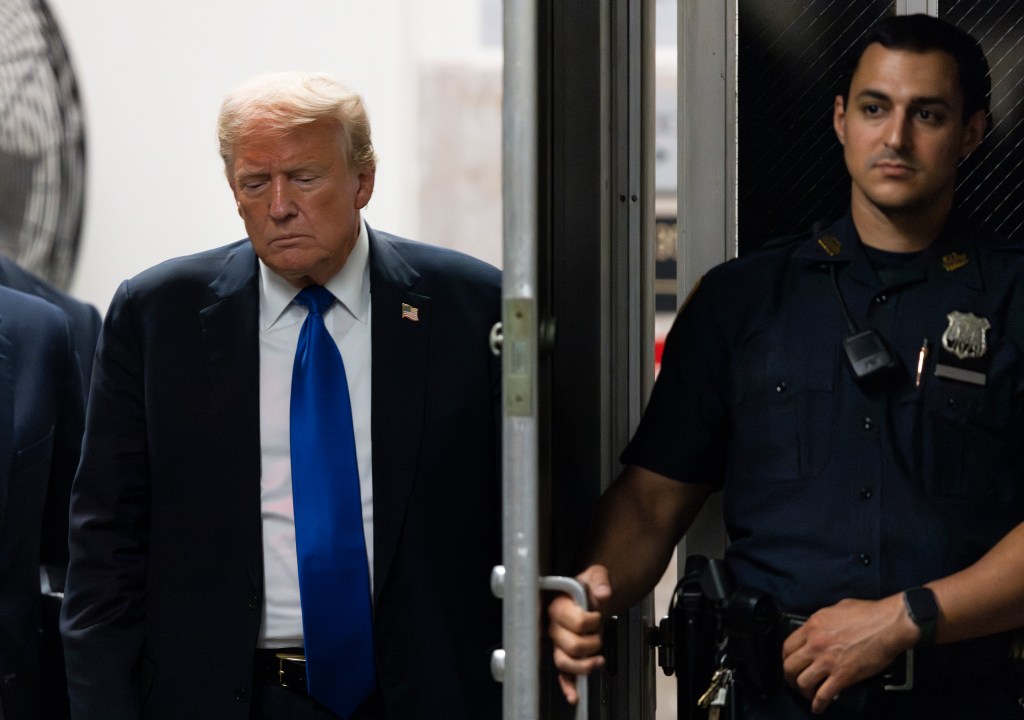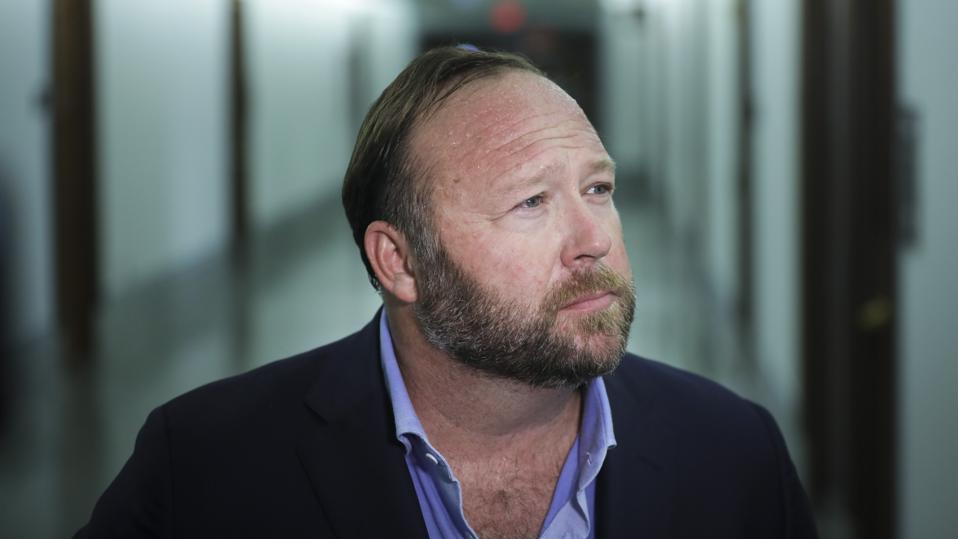Former President Donald Trump was convicted on 34 felony charges of falsifying business records Thursday, becoming the first former or sitting president to ever be convicted on criminal charges—though it remains uncertain if he’ll be sentenced to prison.

Key Takeaways
- Jurors found Trump guilty on every felony count he was charged with, multiple outlets report.
- While the jury decided the verdict, Judge Juan Merchan will ultimately determine what sentence Trump faces, with a hearing scheduled to take place on July 11—four days before the Republican National Convention begins.
- Each of the 34 counts Trump was convicted on is punishable by a fine of up to $5,000 per offense and/or up to four years in prison—meaning in theory, Trump faces up to $170,000 in fines and 136 years in prison if he were convicted on every count and given the maximum sentence.
- Legal experts believe it’s highly unlikely, but not out of the question, that he’ll be sentenced to prison as a first-time offender—though defendants usually get sentenced to well below the maximum prison term.
- Jurors began deliberating Wednesday morning following nearly six weeks of testimony and arguments in the case, which considered whether Trump should be convicted based on reimbursement checks he sent to ex-attorney Michael Cohen, who paid adult film star Stormy Daniels $130,000 before the 2016 election to cover up allegations of an affair with Trump.
- The 12-person jury had to determine whether there’s proof beyond a reasonable doubt Trump falsified business records by labeling his checks to Cohen as being for “legal services,” and whether those records were falsified in order to cover up efforts to “conspire to promote or prevent the election of any person to a public office by unlawful means.”
- Trump called the ruling a “disgrace” in comments to reporters after the verdict Thursday, decrying the trial “rigged” and insisting he’s a “very innocent man,” telling reporters: “The real verdict is going to be November 5 by the people.”
Who was on the jury?
The jury that decided Trump’s fate was made up of 12 Manhattan residents, including seven men and five women. Based on questionnaires they answered during the jury selection process, all but three are college-educated, and the jury included two lawyers, along with a teacher, software engineer, security engineer, physical therapist, speech therapist, salesman, investment banker, retired wealth manager and jurors who work for apparel and e-commerce companies. All said they could be impartial in the case and most did not express having strong feelings about Trump, though two commented they had issues with his politics or persona, but could still be impartial.
Key background
Trump was indicted in the hush money case in March 2023 following a yearslong investigation, marking the first time a former or sitting president had ever been indicted on criminal charges. The trial began in mid-April, with prosecutors calling witnesses including Daniels, Cohen, former National Enquirer executive David Pecker, former Trump aide Hope Hicks and Daniels’ former attorney Keith Davidson. Witnesses elaborated on the hush money scheme to pay off Daniels and others ahead of the 2016 election, with Cohen testifying Trump was involved in the scheme and personally approved the payment to the adult film star. Cohen also tied Trump to the reimbursement scheme, saying the ex-president was present at a meeting in which then-Trump Organization CFO Allen Weisselberg told Cohen his reimbursement checks would be labeled as being for legal services. Despite questions about Cohen’s credibility, prosecutors insisted there was sufficient evidence to corroborate Cohen’s testimony that Trump was aware of the hush money payment to Daniels and effort to reimburse Cohen, arguing during closing arguments Trump’s “intent to defraud in this case could not be any clearer.”
Contra
Trump’s attorneys sought to distance the ex-president from both the hush money and repayment schemes, claiming there was no evidence Trump knew about the hush money payments or any issues with the reimbursement checks, beyond Cohen’s testimony—which they told jurors not to believe. They also maintained those checks were properly labeled since Cohen was Trump’s attorney. Trump’s lawyers tried to discredit Cohen’s testimony, cross-examining him for three days about his attacks on Trump—including calling him a “Cheeto-dusted cartoon villain”—and history of lying under oath, with lawyer Todd Blanche telling jurors during closing arguments the ex-attorney is “the MVP of liars.” The defense presented only one major witness, attorney Robert Costello, who testified Cohen told him Trump did not know about the hush money payment when it happened—but whose testimony was overshadowed by Merchan admonishing the witness for being contemptuous and rolling his eyes in response to the judge. Trump did not testify in his own defense.
What we don’t know
When Trump’s other criminal cases will go to trial. It’s unlikely there will be a verdict in any other case before the November election. Trump’s federal case for allegedly mishandling White House documents has been indefinitely delayed after an initial May trial date got postponed, and his charges in Georgia aren’t likely to go to trial anytime soon as Trump’s lawyers appeal a ruling seeking Fulton County District Attorney Fani Willis’ disqualification from the case. Trump’s federal case for trying to overturn the 2020 election could go to trial as soon as this fall depending on when the Supreme Court rules on whether Trump has “presidential immunity” from the charges, but with a ruling unlikely to come out before June, legal experts believe there wouldn’t be a verdict by Election Day.
Tangent
The jury’s verdict comes after Trump has already been found guilty of criminal contempt 10 times during the course of the trial for violating a gag order that barred him from speaking about witnesses, jurors and others involved with the case. Judge Juan Merchan ordered him to pay $1,000 per violation, and warned that future infractions—which did not come to pass—could result in Trump being thrown in jail.


